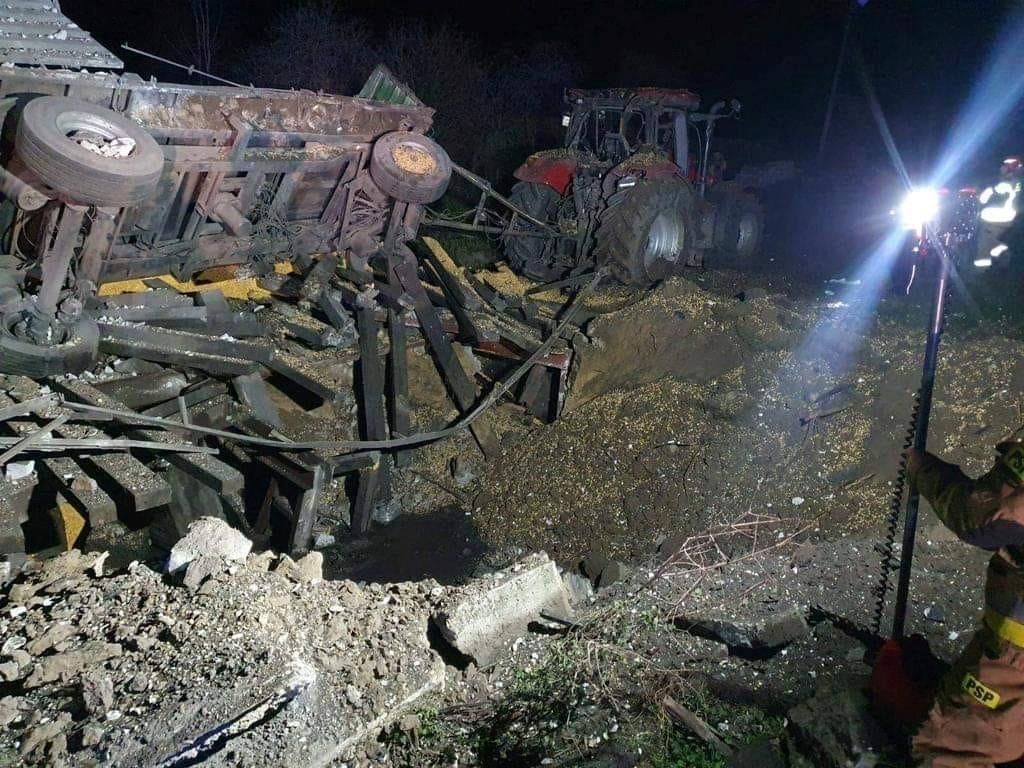What We're Watching: Missiles in Poland, Chinese anger at zero-COVID
Who fired those missiles into Poland?
Explosions apparently caused by rockets or missiles killed two people Tuesday in the Polish town of Przewodów, several miles from the Ukrainian border. The incident occurred amid a barrage of Russian missile attacks on critical infrastructure across Ukraine. Poland went on heightened military readiness as some Polish officials suggested the projectiles might be Russian. An investigation is underway.
But the plot thickened early Wednesday when US President Joe Biden said at an emergency meeting on the subject in Bali, where he’s attending the G-20, that preliminary info suggests it’s “unlikely” the weapons were fired "from Russia." This raises the prospect that malfunctioning Ukrainian air defenses could have been responsible, or that the missiles could have been fired from nearby Belarus, which has supported Russia's invasion of Ukraine. Russia, for its part, says it has nothing to do with the incident at all.
The big questions are: Was it in fact a Russian missile or not? If so, is there any evidence the attack was deliberate, as some Ukrainian officials have friskily suggested, or merely a mistake in the fog of war?
The implications are huge — Poland is a NATO member, so any deliberate attack by Russia would raise the prospect of invoking the alliance’s Article 5 collective defense mechanism, in which all members go on a war footing to respond. That, of course, could set in motion an escalation between the world’s two largest nuclear powers.
In the meantime, an Article 4 response is possible: a much mellower undertaking in which the alliance convenes a formal discussion on the incident but doesn’t take military action.
But a big question remains: Even if this incident was a Ukrainian own goal or a Russian mistake, what would NATO’s response be if Russian President Vladimir Putin tried to tweak the alliance with a bite along the Polish border?
Zero-COVID anger boils over in China
Zero-COVID is driving some people to do things they normally wouldn't dare in authoritarian China. On Monday night, scores of residents trying to escape lockdown in the 13-million strong southern megacity of Guangzhou clashed with cops. Although local protests against zero-COVID are fairly common, even in tightly controlled China, this one is significant for two reasons. First, they rarely turn violent, but this time the protesters overturned a police car and tore down COVID control barriers — an act of defiance that could put them behind bars for years. Second, the demonstrators — mostly migrant laborers from China's poorer provinces whose food supplies are running low — apparently reacted to an online rumor that Chinese pharmaceutical companies were faking COVID positive results to inflate case numbers and make more money. A similar conspiracy theory spurred a mass exodus of employees from China's largest iPhone factory two weeks ago. Beijing relaxed some zero-COVID measures on Friday, but the bulk of the policy remains in place — with no end in sight.This was featured in Signal, the daily politics newsletter of GZERO Media. For smart coverage of global affairs that normal people can understand, subscribe here.
